Canadian tech companies say they value diversity but what are they doing about it?
CBC asked 31 companies to provide details on the diversity of their workforce, but got few details
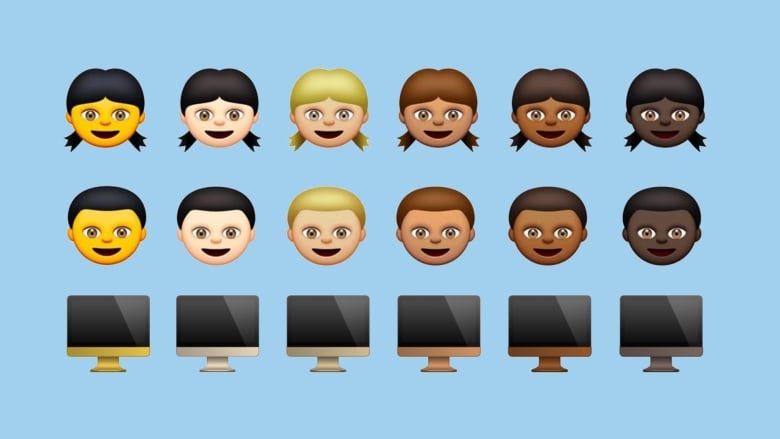
After U.S. President Donald Trump signed an executive order in January blocking citizens from seven predominantly Muslim countries from entering the U.S., a long list of Canadian tech companies signed a pledge opposing the ban.
Members of Canada's tech community saw Trump's move as a rejection of the diversity on which they felt their industry was builtand decided to speak out.
"We believe that this diversity is a source of strength and opportunity," read the open letter admonishing the ban, which was signed by executives and employees from some of the most well-known companies in the country BlackBerry, Hootsuite, Shopify and more.
But when CBC News sought to gauge what this commitment to diversity lookslike in practice, Canada's tech community had remarkably little to say.
It does make me question their commitment to diversity and inclusion.- Y-Vonne Hutchinson, diversity specialist with Project Include and ReadySet
In May, we asked 31 Canadian technology companies if they collected data on the diversity of their employees, and if so, whether they would share this data with CBC News.
Only two companies OTTO Motors, the commercial division of Waterloo, Ont.-based Clearpath Robotics, a maker of self-driving warehouse robots, and the Toronto-based investing app Wealthsimple were willing to do so.
A third company, the Toronto-basedonline retail marketing startup Hubba, said it was preparing to conduct its first diversity survey and release the results in the coming month. It expects to publishareport on its progress every six months thereafter.
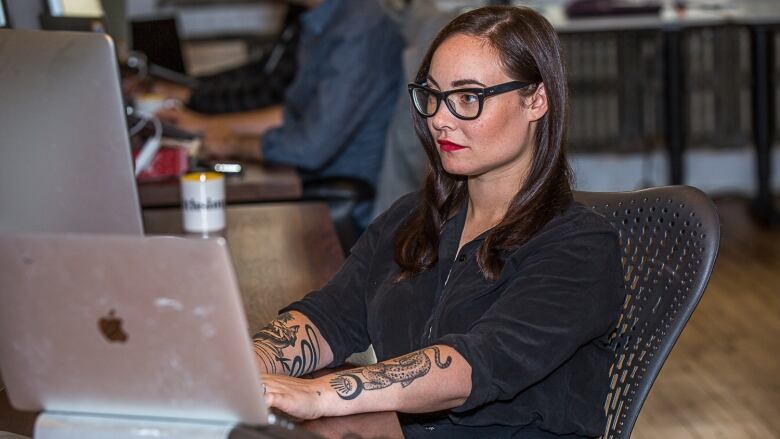
The sheer number of holdouts came as a surprise to Y-Vonne Hutchinson, founder of Oakland, Calif.-based diversity solutions firm ReadySet,in particular, given the number of U.S. companies that have published annual reports since 2014.
"It does make me question their commitment to diversity and inclusion," said Hutchinson, who is also on the team behind Project Include, which guides tech startups towardmore diverse and inclusive practices. The project's founding members include well-known diversity advocates such as Ellen Pao and Tracy Chou.
"By publishing these numbers, you increase transparency and accountability around how the organization looks and the way in which it prioritizes diversity and inclusion," Hutchinson said.
Mostly white, mostly male
Many companies in tech and beyond have realized the key to building successful products and services is to have a range of employees ones who think and look differently from one another working together to solve problems.
The idea is that employees with varying backgrounds and skills can bring unique perspectives that aren't necessarily represented by the tech sectors white, male majority.
That's where diversity reports can help. One way for a company to better understand the types of people it employs and where thegaps are is to quantify that informationand use itto build more diverse teams.
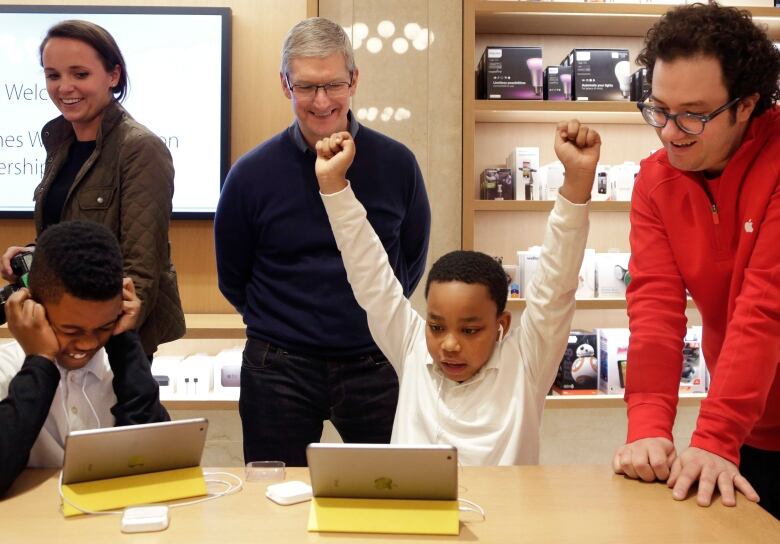
But that's not to say measuring the problem alone leads to change. As recently as 2016, we learned that just 145 of Facebook's nearly 8,500 employees are black. We learned that 12 per cent of Apple employees are Hispanic, versus just four per cent at Google.
And we learned that Uberhas an engineering department where only 15 per cent of employees are women a telling statistic for a company still smarting froma searing indictment of its workplace cultureby one of its former engineersand thesexual harassment investigationslaunched in its wake.
Among the industry's biggest players, there has been little progress in recent years.
Diversityreports also don't include as much information as some would like for example, how long employees stay, which can tell a story of its own, or how many employees are disabled or identify as LGTBQ. In their most basic form, they typically provide a snapshot of how tech's most-influential companies are doing across job categories in terms of gender and race.
Yet in Canada, there have been no comparable public efforts to date.
Little to say
The companies approached by CBC News ranged from some of the largest and well-known in the country including BlackBerry, Shopify and Hootsuite to up-and-coming players such as ecobee, Thalmic and Breather.
We sent each company the following questions:
- Does your company collect data on the diversity of your employees?
- How is this data collected?
- Why do you collect this data?
- Can you provide your company's most recently collected diversity data to CBC News?
- Can you offer any details about programs/initiatives to support diversity and inclusion at your company?
The overwhelming majority of companies declined to participatewhile two of the biggest names in Canadian tech, BlackBerry and Hootsuite, did not respond to multiple requests for comment.

E-commerce company Shopifysaid it wasstill analyzing its employee data and was hoping to have more information to share by the fall "or early next year."
Others, such as the messaging app Kik and the satellite imaging company Urthecast, said they didn't have the resources to collect this sort of informationand would not say how long it would take to do so.
Many more, including ecobee, Wave, WattPad, Vision Critical, Lightspeed, Bench, TopHat, Vidyard, Sandvine and Hopper, said they didn't formally collect diversity information.
'It's difficult to talk about'
Only OTTO Motors and Wealthsimple provided a breakdown of employees and even then, only by gender.
Like most technology companies, OTTO Motors is predominately male: more than 80 per cent of its 165 employees are men.
The company's marketing communications manager, MeghanHennessey,said OTTO Motors started collecting gender data "to keep track of where we stand with respect to diversity, identify gaps and help us to plan improvements/initiatives."
The company only officially collects data on men and women through an employee records management system. But it doesn't capture race or other metrics.
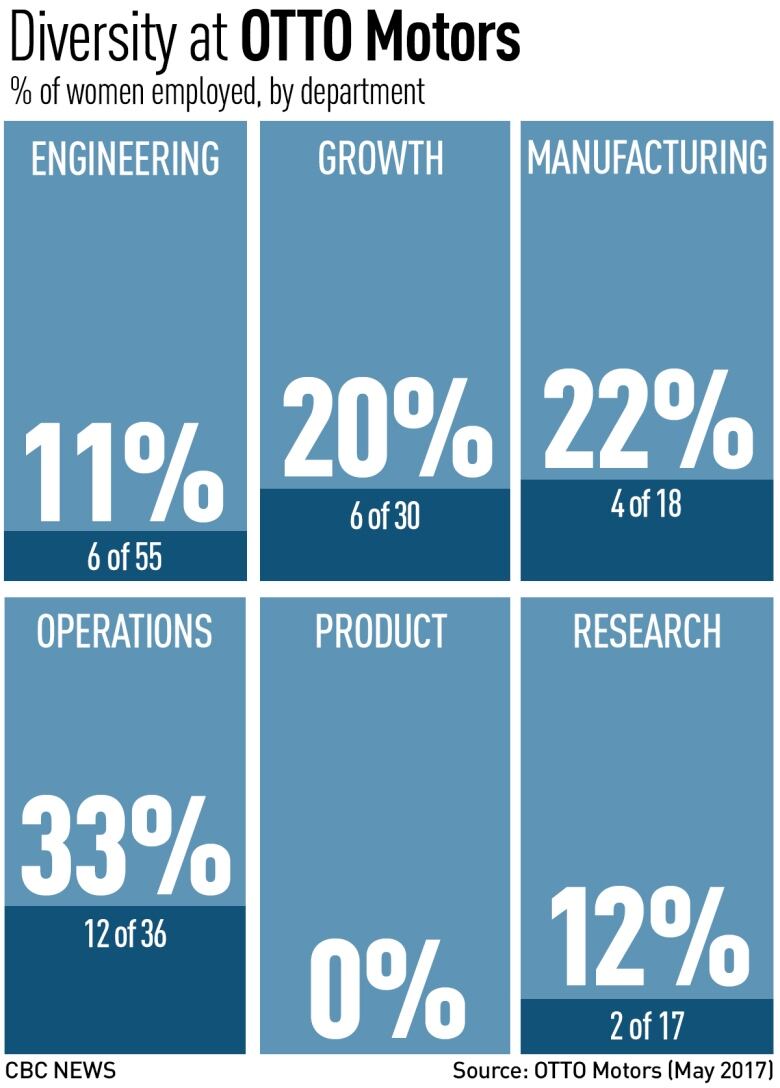
The reluctance to talk numbers isn't unique to Canada. In the U.S., high-profile companies such as Tesla, Snapand Spotify still haven't released reports. Others such as Lyft, eBay and Uber have only released their first reports in the last few months.
"I think it's difficult to talk about because there aren't a lot of companies that feel that they're at the place they want to be when it comes to inclusivity, and I would count ourselves amongst that list," said Nora Jenkins Townson, director of people operations for the investing app Wealthsimple.
Only 29 per cent of the company's 118 employees are women, with a similar percentage represented in leadership and management positions, although the latter figure is up 15 per cent year over year. However, Wealthsimple said it didn't have a breakdown across departments, such as engineering and marketing.
"I don't think we're where we want to be at all. But we want to be part of that solution,"Townsonsaid.
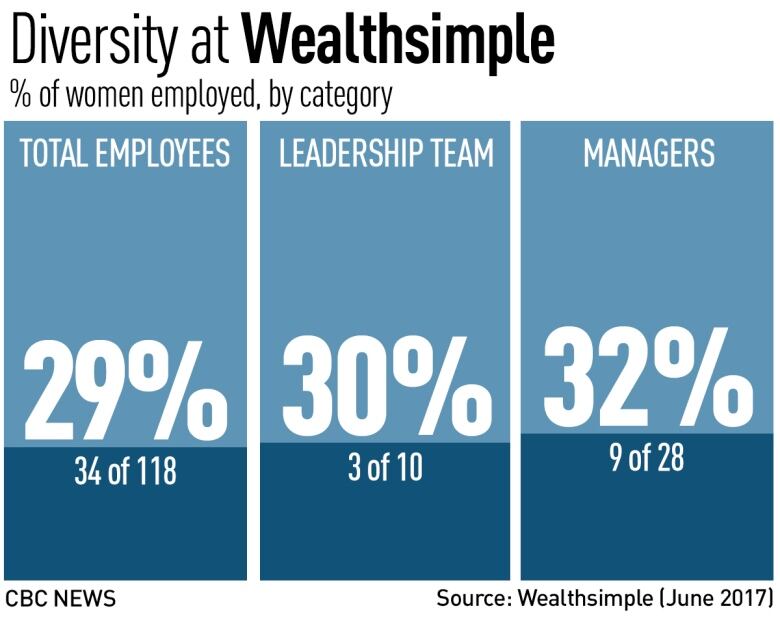
Data could make things better
Even among companies that have published reports, the results don't necessarily offer a complete picture.
"Generally, you have companies that will just publish their gender background and maybe their race background in terms of hires, and that's it," said Project Include's Hutchinson. "We say that's not enough."
A good diversity report should also take into account other indicators, such asage, the proportion of employees with disabilities, the numberwho identify as LGBTand breakdowns across different types of work technical and non-technical and positions, from entry level to leadership.
But diversity advocates say the goal shouldn't be merelyto publish some numbers and call it a day. Rather, reports done well should be part of a company's larger diversity and inclusion strategy one that, like any problem a business faces, requires data so that it can be understood and goals can be set for improvement.

"Metrics alone mean nothing in the absence of action," Hutchinson said. "Metrics are a tool by which you measure the impact of your initiatives. And in order to do that, you actually have to have initiatives."
Hutchinson said those initiatives have to beintersectional and holistic, meaning they account for people thathave in the past been excluded, and strive to benefit all.
"For a very long time, we were hearing in Silicon Valley, 'Let's just focus on women.' And what we found is what that actually meant was, 'Let's just focus on white women," she said.
"There were so many people that still got left behind."
Stepping up
It wasa grassrootseffort that put pressure on some of the largest tech companies in Silicon Valley, forcing them to release their reports.
That was in 2014 meaning Canadian companies are at least three years behind when it comes to making similar data public.
"I think we would need to have someone take a leadership role in Canada in terms of producing a report and then encouraging or even pressuring other companies to follow suit," said Heather Payne, who founded HackerYou, a coding school and private career college, and the not-for-profit organization Ladies Learning Code.
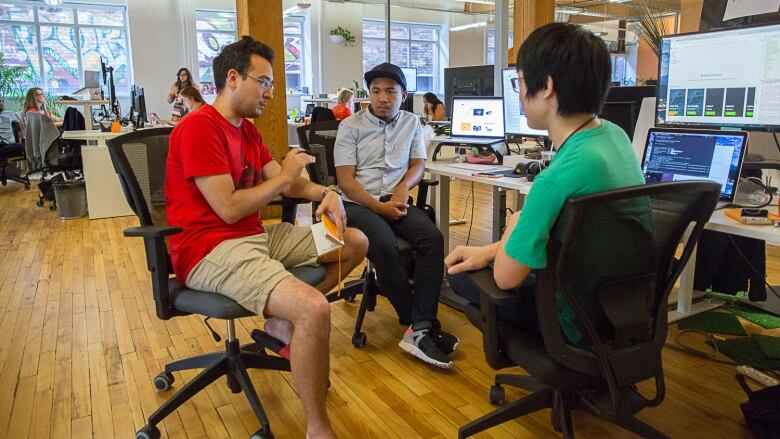
Ben Zifkin, founder and CEO ofHubba, said his company is basing its survey on guidelines created by Project Includeand plans to release the findings as part of acase study forother companies in Canada'stech community to learn from.
"Diverse teams actually make better companies, and I wholeheartedly believe that," Zifkin said. "And it's weird that in this one situation, the data actually shows that that's the case, yet a lot of us don't focus on it.
"There's something hard about shining a mirror on yourself sometimes."
----
Here's what some companies say they're doing
Among the handful of companies that were willing to discuss their diversity and inclusion efforts, there were common threads:
-
Both OTTO and Shopify highlighted their prayer rooms for employees, areas for nursing mothersand flexible work hours.
-
Some addressed parental benefits for example, guaranteed daycare at Freshbooksand topped-up parental leave at both Freshbooks and Wealthsimple.
-
FreshBooks and Shopify touted their gender-neutral washrooms.
-
Wealthsimple talked about how it re-tooled its job-interview process to remove gendered and non-inclusive language from its job applications and eliminate take-home assignments, which can put some candidates at an unfair disadvantage.
-
Both Wealthsimple and Hubba now ensure there are women ontheir interview panels.
-
Wealthsimple and Shopify also give unconscious bias training to interviewers.
-
Hubba and Wave mask the gender, race, age and sexual orientation of job candidates.
-
Hubbaand Wavenoted their sponsorship of programs such as Venture Out supporting LGBT members of the tech community and Ladies Learning Code.Wealthsimple referred to a recent event it hosted on increasing the number of women in the tech industry.
-
Wave, Wealthsimple, Sandvine and Hubba each highlighted their internal development programs and mentorship opportunities for women.
-
Freshbooks, OTTO, Wealthsimpleand Shopify all mentioned specific groups and committees for diverse employees, ranging from a Wealthsimple "Inclusivity" chatroom to Shopify's employee groups for LGBTstaff and employees of colour.













_(720p).jpg)


 OFFICIAL HD MUSIC VIDEO.jpg)
.jpg)



























































































